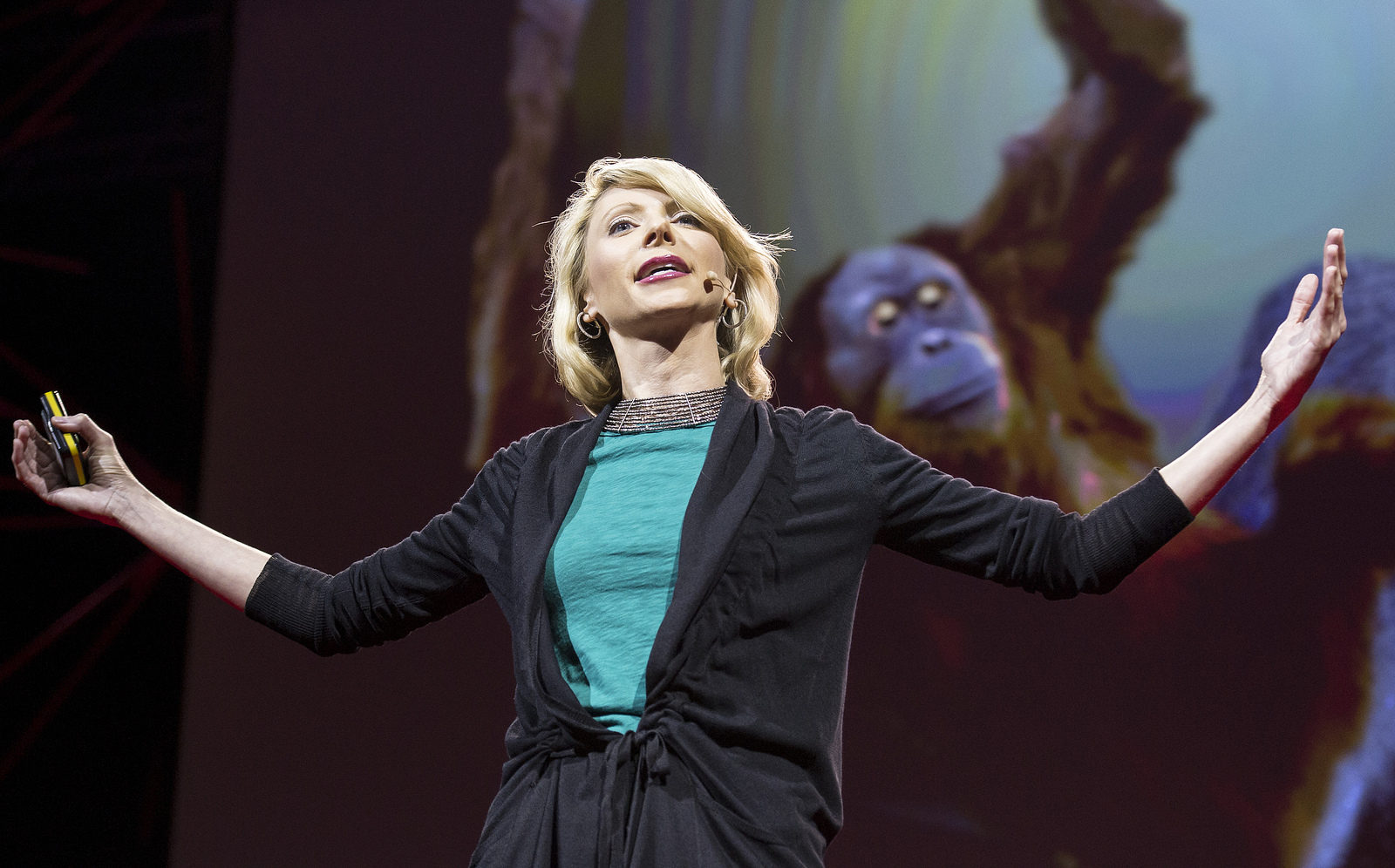
Amy Cuddy demonstrates a classic power pose used by humans and chimps alike — spreading your arms wide to appear more powerful. Photo: James Duncan Davidson
Power posing is always in style. So we were excited to see it featured in The New York Times Fashion & Style section this weekend in the article “Amy Cuddy takes a stand.” In a glowing article about the wide influence of her TED Talk (watch: Your body language shapes who you are), the writer notes that it has affected “elementary school students, retirees, elite athletes, surgeons, politicians, victims of bullying and sexual assault, beleaguered refugees, people dealing with mental illness or physical limitations.”
This, we knew. (See a collection of emails that Cuddy received in the months after her talk went viral.) But what we didn’t know: “Power posing showed up twice in Dilbert comic strips, and Planters nuts and Secret deodorant have developed ad campaigns around it.”
Below, the evidence. First, Dilbert on power posing.

Amy Cuddy tweeted in response to this one, “Silly, Dilbert. THAT’s not the right way to power pose!”

And speaking of comics, power posing also appeared in the comic Betty.

Here, Mr. Peanut tries his hand at inspirational speaking, complete with his arms in the air.
And the Secret ad that promotes power posing:
.
Power posing also got awesomely spoofed in this Vooza video.
.
Earlier this summer, we spoke to actor Manish Dayal, who used power posing to fuel his performance in the move The Hundred-Foot Journey. And The New York Times piece let us in on another actor using power posing as a form of method acting: Allison Williams of the show Girls. She tells the Times that she does the reverse of power posing. “Marnie generally has her shoulders forward, inched slightly up, and her arms folded as a line of defense,” she says.
Something none of the rest of us will ever do again, thanks to this talk that showed us how posture can make us feel about ourselves:
Comments (3)